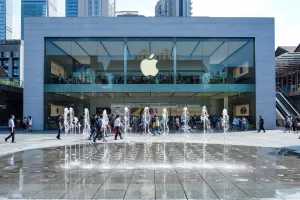President Tinubu Approves ₦10 Billion for Solar Mini-Grid at Aso Rock

President Tinubu Approves ₦10 Billion for Solar Mini-Grid at Aso Rock
President Tinubu Approves ₦10 Billion for Solar Mini-Grid at Aso Rock Amid Rising National Power Crisis
In a development that has sparked widespread public debate, the Nigerian State House has approved a staggering ₦10 billion for the installation of a solar mini-grid system at the Presidential Villa, Aso Rock. This move comes amid escalating electricity tariffs, increasing public dissatisfaction with the power supply, and over ₦923 million in unpaid debts by the Presidency to power distribution companies.
The approval has raised critical questions about the state of Nigeria’s national electricity grid, the government’s energy priorities, and the administration’s promises.
Notably, during his campaign, President Bola Ahmed Tinubu pledged to ensure stable and constant electricity supply during his first term in office. However, this recent development signals a departure from that commitment, as the nation’s leader takes steps to disconnect the Villa from the national grid in favor of self-generated solar power.
A Power Move – But at What Cost?
The decision to spend ₦10 billion on solar energy infrastructure at the Presidential Villa has been interpreted by many Nigerians as a sign of abandonment of the national power grid. With ordinary citizens struggling under the weight of skyrocketing energy bills and erratic power supply, the president’s move has been described by critics as self-serving.
Earlier in the year, the Federal Government scrapped electricity subsidies and introduced a new categorization system—ranging from Band A to Band E—based on the average daily supply of electricity. Many Nigerians now pay higher tariffs with little or no improvement in power availability. For a government that has asked its citizens to make sacrifices, the optics of a lavish energy project at the top seat of power seem deeply out of touch.
The Symbolism of Going Off-Grid
The symbolic implication of the Presidential Villa going off-grid is not lost on many. If the number one citizen of the country no longer relies on the national electricity system, what hope remains for the average Nigerian household? The move raises concerns about the government’s confidence in its own infrastructure and underscores the deepening crisis in the energy sector.
“It takes ₦999.99 million to reach a billion. Multiply that by ten, and you have the amount spent on a solar project for a single government property,” said one analyst, emphasizing the gravity of the spending in a time of national economic strain.
Comparisons and Lessons
The approval has also sparked comparisons with other countries. For instance, a video circulating online showcases the impressive progress of a $250 million solar farm project by ZimPlats, a private mining company in Zimbabwe.
Observers have praised the efficiency, scale, and transparency of the ZimPlats project, urging Nigerian leaders to draw inspiration from such organized energy efforts.
Others have pointed to bold leadership in countries like Burkina Faso, where the president has reportedly taken significant steps to align government practices with the realities facing citizens, demonstrating a level of humility and solidarity that many Nigerians feel is lacking at home.
Conclusion
As Nigeria grapples with its electricity woes, the decision to invest ₦10 billion in off-grid energy for Aso Rock sends a powerful message.
Whether it signals innovation or indifference remains a matter of perspective. What is clear, however, is that the disconnect between the government and the governed—both literal and metaphorical—appears to be widening.
In a time when unity, transparency, and shared sacrifice are most needed, many Nigerians are left wondering: if those in power are unplugging from the system, who will be left to fix it?













